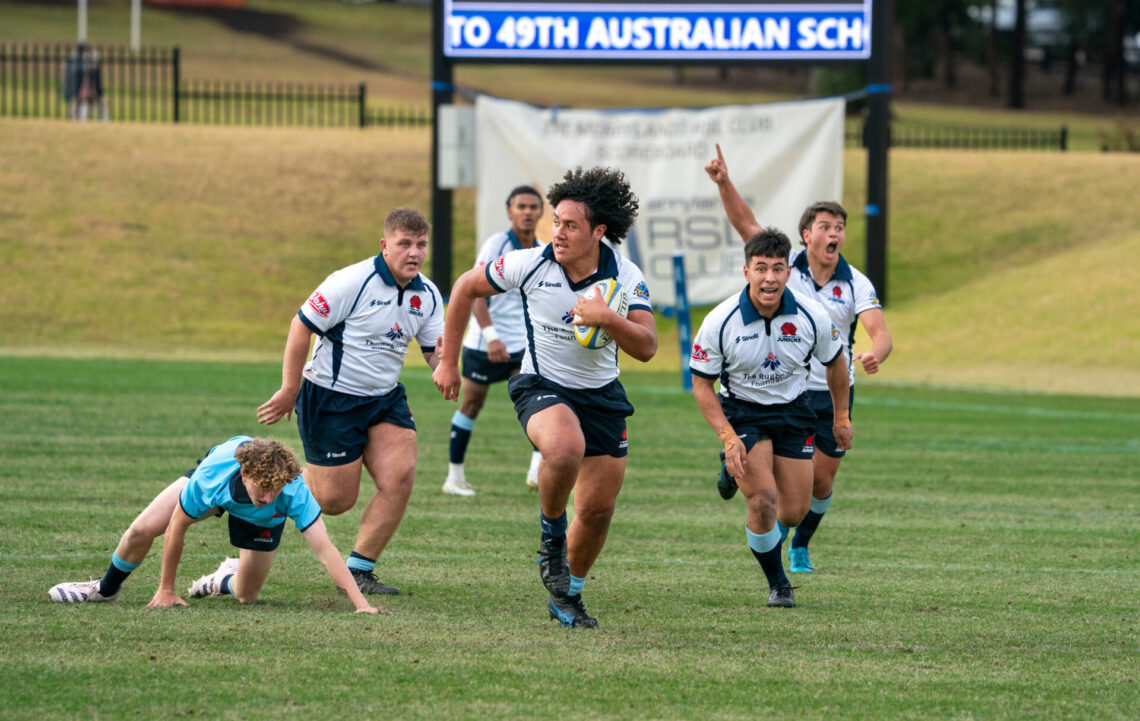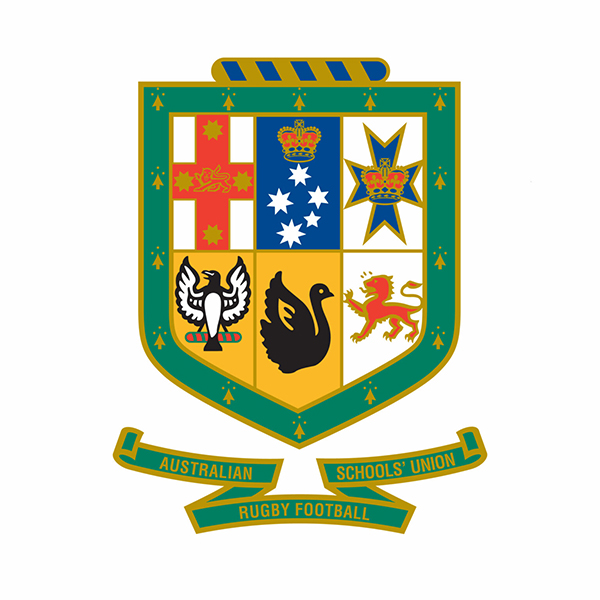MEMO TO:
- ASRU Executive
- State Delegates
- State Schools Unions Office Bearers
- State Sub Union Conveners
- Competition Directors
- School Rugby Directors
- Head Coaches School 1st XVs
Note to all who receive this memo: Please forward this email to all rugby schools you may have contacts for.
MEMO FROM: Australian Schools Rugby Union
DATE: September 20th, 2023
TOPIC: SANIX World Rugby Youth Tournament
Girls: Global Arena in Munakata city, Fukuoka between April 26th and May 1st, 2024
Boys: Global Arena in Munakata city, Fukuoka between April 26th and May 6th, 2024
Expressions of interest are invited from boys and girls rugby schools in Australia to be selected to represent Australia at the 2023 SANIX Tournament in Japan. One boys school and one girls school – can be the same school.
The Australian Schools Rugby Union has been invited to select the school (one boys and one girls) to play in the tournament. All teams considered would need to be of the highest calibre of schools in the country.
Applications must be received in writing by email addressed to:
SANIX TOURNAMENT 2024 SELECTIONS,
C/O ASRU Secretary,
Applications close at 5pm Tuesday October 10, 2023
A selection committee will convene and all schools will be advised on the outcome of the application by October 31.
The ASRU will then advise SANIX organisers by the due date of 4 November
Applications should include:
- School name and primary contact person’s contact details
- State whether you are applying for the boys, girls or both.
- The name and contact details of the Headmaster/ principal and that the school leadership supports the application.
- A brief statement of the schools rugby playing history and any recent successes.
- A brief statement about what representing Australia at the tournament would mean to the school, the players and the school’s community
The SANIX World Youth Rugby Championships is a prestigious international event and it is expected that only high-quality teams should apply. There is an expectation that schools that compete are in the top five from their country. We know we don’t have a local competition to determine a “top five”. New Zealand does and only sends its top teams.
The ASRU stands ready to advise the successful schools on the unique nature of participating in the tournament along with the cultural protocols of playing rugby in Japan. Playing rugby in Japan is a unique and fascinating diverse cultural experience with its own special and requires protocols
The Boys Competition started in 2000.
- 8 COUNTRIES INVITED – most commonly but not restricted to AUSTRALIA, NZ, SOUTH AFRICA, ENGLAND AND OTHERS
- 8 TOP JAPANESE HIGH SCHOOLS
- TEAMS ARE IN POOLS OF 4 WHICH ALL INCLUDE 2 OVERSEAS TEAMS AND 2 JAPANESE TEAMS.
- 5 DAYS OF PLAYING WITH THREE REST DAYS
- DAYS POOL MATCHES
- FINAL THREE DAYS ARE ALL DECIDER MATCHES.
- END OF TOURNAMENT THERE IS A 1ST, 2ND, play offs all the way to 16TH
- ALWAYS PLAYED IN ‘GOLDEN WEEK’ PLAYING DAYS 26 APRIL – 6 MAY
- EXPECTATION IS SCHOOL WILL BE A ‘TOP’ HIGH SCHOOL TEAM FROM EACH NATION.
- NZ ACTUALLY SEND THEIR NATIONAL CHAMPION SCHOOL FROM THE YEAR BEFORE.
- IN RECENT YEARS THE COST TO EACH TEAM IS THE TRAVEL TO THE TOURNAMENT, WITH THE MAJORITY OF COSTS WHILST IN JAPAN BEING PAID FOR BY SANIX COMPANY.
- THERE IS ALSO A GIRLS SEVENS COMPETITION WITH FOUR FOREIGN TEAMS IT ONLY HAS TWO DAYS OF COMPETITION. It started in 2013.
Notes for Boys Team (15s)
- The tournament organiser shall bear the following costs:
- Accommodation/Meals (three meals per day) at the Global Arena during the tournament period
- (from April 26th to May 6th).
- Pick-up bus between the Fukuoka Airport and the Global Arena (tournament venue and hotel).
- All the related expenses concerning events and/or functions to be held in the Global Arena.
- Medical attention for injury sustained during a match at the match venue.
- The following costs shall be borne by each participating team:
- – Cost of international travelling from a departing airport to the Fukuoka Airport (Participating teams
- shall arrange and purchase necessary air tickets by themselves).
- The following costs shall be borne by each participating team:
- Cost of international travelling from a departing airport to the Fukuoka Airport (Participating teams
- shall arrange and purchase necessary air tickets by themselves).
- Costs associated with additional team members in excess of 34 persons.
- Sightseeing expenses, if any, other than an excursion offered by the organizer.
- All daily life expenses during the stay in Japan such as phone calls, laundry and ice.
- Costs of treatment for illness contracted or injury sustained at any time during the team’s stay in
- Japan and medical treatment insurance to cover such costs.
- All costs of any touring prior to and post the tournament.
- Eligibility
- A team must be consisted of one school only.
- All players must be turning 18 or younger in 2024 – this is an U18’s tournament.
Notes for Girls Teams (Sevens)
- The tournament organiser shall bear the following costs;
- Accommodation/Meals (three meals per day) for 15 team members during the tournament period
- (from April 26th to May 1st).
- Pick-up bus between the Fukuoka Airport and the Hotel.
- Pick-up bus between the hotel and the Global Arena (match venue).
- All the related expenses concerning excursion, events and/or functions to be held in the Global Arena.
- Medical attention for injury sustained during a match at the match venue.
- The following costs shall be borne by each participating team:
- Cost of international travelling from a departing airport to the Fukuoka Airport (Participating teams
- shall arrange and purchase necessary air tickets by themselves).
- Costs associated with additional team members in excess of 15 persons.
- Sightseeing expenses, if any, other than an excursion offered by the organizer.
- All daily life expenses during the stay in Japan such as phone calls, laundry and ice.
- Costs of treatment for illness contracted or injury sustained at any time during the team’s stay in
- Japan and medical treatment insurance to cover such costs.
- 3. Eligibility
- A team must be consisted of one school.
- All players must be turning 18 or younger in 2024
Boys (8 countries invited)
- 2000 The Kings School (winners)
- 2001 Joeys
- 2002 Randwick Boys High
- 2003 St Edmunds Ipswich
- 2004 St Stanislaus
- 2005 The Southport School
- 2006 Marist Canberra
- 2007 Westfields Sports (winners)
- 2008 St Edmunds Canberra
- 2009 Prairiewood HS
- 2010 The Hills Sports HS
- 2011 cancelled tsunami
- 2012 St Stanislaus
- 2013 Nudgee
- 2014 St Edmunds Canberra
- 2015 Brisbane Boys College
- 2016 St Edmunds Canberra
- 2017 no Aust team invited
- 2018 St Augustine’s College
- 2019 Waverley College
- 2020 cancelled Covid
- 2021 cancelled Covid
- 2022 cancelled Covid
- 2023 Donwlands College
Girls (4 countries invited)
- 2013 only Japanese teams
- 2014 Sunshine Coast – club team
- 2015 Brisbane State High
- 2016 no invite to Aus
- 2017 Aranmore WA
- 2018 St Clare’s ACT
- 2019 no invite to Aus
- 2020 cancelled Covid
- 2021 cancelled Covid
- 2022 cancelled Covid
- 2023 Kings Christian College (winners)
THE AUSTRALIAN SCHOOLS RUGBY UNION ‘ASRU’
The Australian Schools Rugby Union ‘ASRU’ is an independent, incorporated not-for-profit association run by volunteer members of the teaching profession and supporters who believe rugby has a unique ethos and benefits that contribute to the broader education of young people.
The ARSU is responsible for implementing, administering, coordinating, organising and controlling all projects and activities relating to all rugby union activities in Australia at the school level.
For over 50 years, the ASRU has provided an expansive nursery to foster the opportunities and aspirations of school rugby players from a wide range of established and emerging competitions and networks. From the 1984 Grand Slam-winning Wallabies team and the two Wallabies World Cup winning teams in 1991 and 1999, 27 of the players were Australian Schoolboy representatives. Since its inception in 1969 over 200 representatives of the Australian Schools Rugby Union have gone on to represent the Wallabies in the international arena. Hundreds more have been selected in state and other representative teams during this time.
THE AUSTRALIAN SCHOOLS RUGBY FOUNDATION
The Australian Schools Rugby Foundation is a separate incorporated body whose aim is to support the aims of the Schools Rugby Union. The Foundation comprises business professionals, past Australian Schoolboys and Wallabies who look to use their business networks to provide additional financial support to the ASRU. The Foundation Chairman is David Mortimer.
MEDIA
Contact: [email protected]


